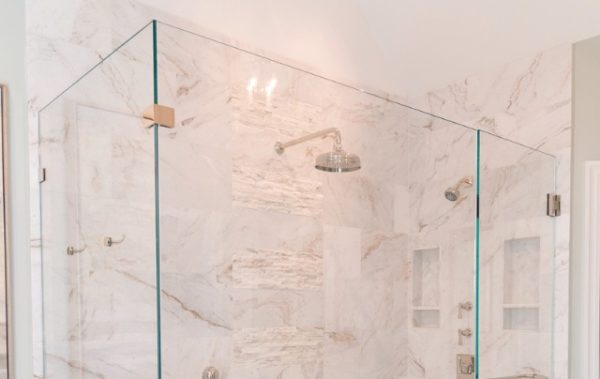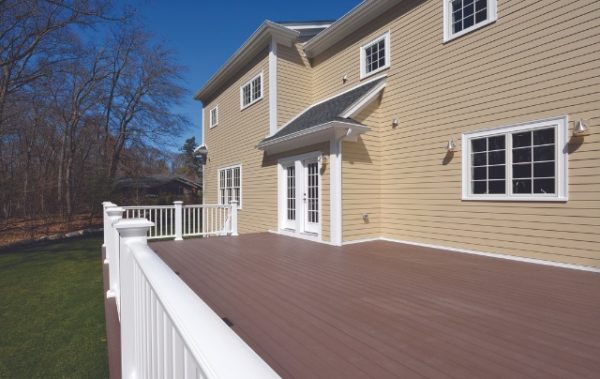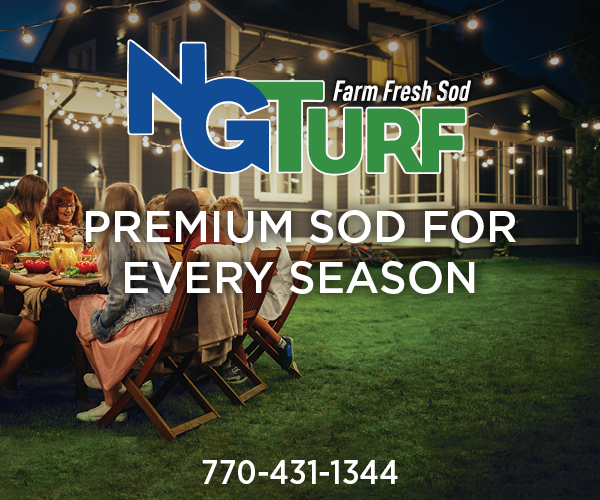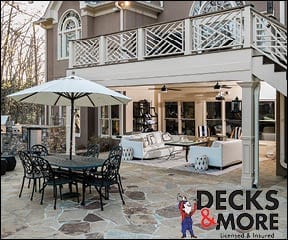Don’t Fence Me In

 |
The famous American poet Robert Frost wrote, Good fences make good neighbors. In Frosts New England, fences did make good neighbors, keeping the cows and sheep where they were meant to be. While fences arent as vital today for livestock control, they still play an important role in the landscape.
There are many reasons to install a fence on your property, and defining a clear purpose for the fence will help you choose the appropriate type, materials and design. Consider the primary needs that you have for installing a fence (see below).
Once youve established the purpose for the fence, consider the type of fence, style and building material. Obviously, the fences function will have some bearing on the type of building material used for construction. Tennis courts usually require a chain-link fence, while a fence for noise reduction will need to be of a denser material.
Fences can be a significant investment, so take the time to do your homework before making a decision. Remember that the right fence will add to the resale and asset value of your property. Also, neighborhood or subdivision covenants and restrictions may dictate the specifics of fencing material and heights. If you are not locked into a particular type of fencing by such restrictions, plan carefully.
A fence visually defines an area, so it is important that it becomes an integral part of the landscape. Ideally, the fence should complement the architecture and color scheme of your home, as well as the nature of your landscape. While a rustic split-rail wood fence might be your dream, it certainly would not be in keeping with a formal estate.
Conversely, an ornate iron fence would be an eyesore if paired with an informal, contemporary structure. Use common sense when choosing a style for your home and surroundings; if you are not sure of the best design type, consult a professional for recommendations.
Once youve selected a particular style, its time to consider what type of material to use for construction. Certain architectural styles lend themselves to particular building materials. For example, wrought iron is appropriate for a home with Charleston or Savannah influence. Wooden fencing complements Colonial- or traditional-style homes, and a contemporary or Asian-influenced architectural style could be enclosed with bamboo or another natural-type fence. Dont limit yourself to these materials, though; there are many choices that are appropriate, depending upon your individual needs.
What materials are available to build fences? Today, there are a myriad of choices. The most popular and widely used material is wood, and vinyl fencing is rapidly gaining market share in the fence world. Metal fencing products, whether ornate iron or utilitarian chain-link, are another option.
Wood fencing
 |
Wood is readily available, and comes in a wide range of colors, sizes, qualities, styles and price ranges. Wood fencings best attribute is its flexibilityyou can find wood for almost any type of fence imaginable. Wood fences can be built for a variety of purposes, including privacy and security, to keep children and animals secured and as an ornamental accent.
Built as a more open structure, a wooden picket or split- rail fence can serve as a border, as well as an invitation for conversation between neighbors. In another adaptation, a solid wooden fence completely screens one area from another. A climbing vine would soften the look of such an imposing fence.
When choosing wood as the building material for a fence, it is very important to consider the grade of lumber, paying particular attention to the material from which the posts are constructed. In the wet, humid climate of the Atlanta area, wood fencing is extremely susceptible to rot. Rot-resistant and pressure-treated lumber (cedar, redwood, cypress and pressure-treated pine, for example) will outlast normal woods in this climate.
If you are concerned about the chemicals in pressure- treated lumber, at the very least use pressure-treated posts, since the detrimental effects of exposure to wet soil will naturally affect the posts more rapidly than the fencing itself. The disadvantages of using wood as a fence material are warping, splintering and rotting.
Depending on the type of wood used and the fence design, wood fencing can be left to age naturally, or be painted or stained. If painted, youll need to apply a fresh coat regularly. Stain needs reapplication as well, but not as often. Even if you dont apply a decorative finish, a wood sealant applied annually is a good maintenance practice, guaranteeing a longer life for the structure.
Vinyl fencing
 |
Relatively new on the market, vinyl often is used as fencing for horse paddocks, childrens playgrounds and other institutional areas. An attractive benefit of vinyl fencing is that it is virtually maintenance-free. Constructed of material similar to vinyl siding and vinyl windows, vinyl fencing is an attractive, weather resistant alternative to wood. It often is made from recycled plastics, which ecologically is appealing to many consumers.
Vinyl timbers are manufactured to standard timber dimensions, which makes it easy to measure, purchase and install. The cost of vinyl fencing is comparable to wood, but it will not warp, splinter, shrink or rot.
Recent improvements in technology have reduced many common complaints about vinyl fence materialmildew, chalky finish and discoloration. Today, there is not as much variety with vinyl as is available with timber fencing, but look for vinyls presence and style selection to increase in the future.
Metal fencing
 |
Fences constructed of metal are the most permanent structures available, but they also can be very expensive. The least expensive metal fence, chain-link fencing, is a very good product if you are looking for a utilitarian fence, particularly to enclose a large area such as a backyard. Zinc and vinyl coatings can enhance landscaping, blending with trees and shrubbery, and protect against rust and corrosion.
Newer, mass-produced products of aluminum, steel and alloys are often replacing ornamental fences traditionally constructed of wrought iron. This type of fencing can provide a more formal look. They often are used if a high level of security is desired. This type of fence is used to enclose swimming pools, along with automatic locking gates.
Many metal fence materials blend very well with stone or masonry walls, and complement many architectural styles. Metal fence material that combines zinc and iron alloy-coated steel with aluminum is particularly corrosion resistant. Minimal maintenance is required, and the product, if installed correctly, will last virtually forever.
Electric fencing
Two types of electric fencing are used in residential applications. The most common is the type that will prevent dogs from roaming outside property boundaries; the other type is used to keep wildlife out of the yard.
You must take caution when burying the wire in either of these applications, since a fence placed too close to a neighbors property may inadvertently be cut during landscaping, gardening or other work requiring digging.
Electronic fences require little maintenance but should be checked regularly. If youre not sure your dog would respond to an electronic fence, see if you can test the product first. Also check for money-back guarantees, so if the system doesnt work with your dog, you can return it for a full refund.
Once you have some idea of what your needs are regarding fencing, seriously consider hiring a professional for installation. While some jobs can be tackled by the handy do-it-yourselfer, leave the big jobs to the pros. They have the proper equipment and know-how when it comes to recommending materials and design, as well as all of the equipment to do the job right. After all, this particular project is usually a hefty investment from your pocket, so trust the experts to install the perfect fence for your landscape.

Makeover of the month – family room makeover – Stylish Newlyweds Find Domestic Bliss_1111

Floating Hardwood Floors

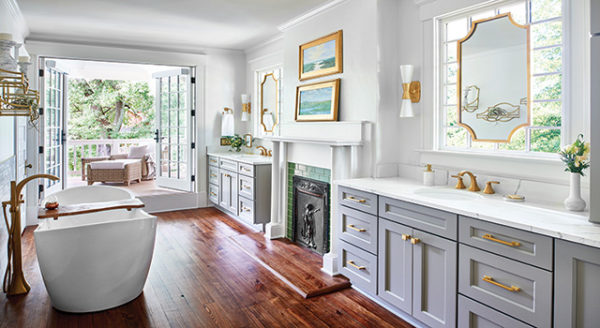
Award-Winning Kitchens, Baths, Interior Design and More
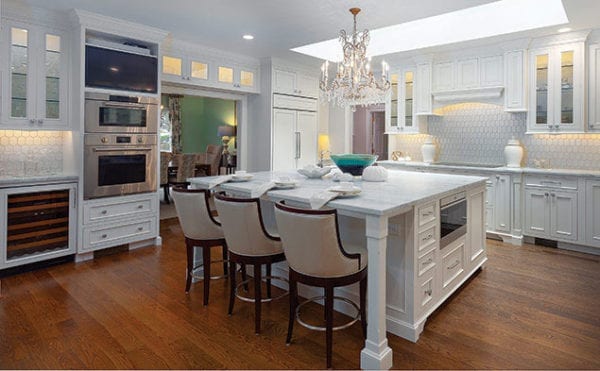
Atlanta’s NKBA Designs of Distinction 2019 Winners
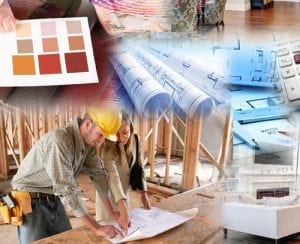
100 Things to Know Before You Remodel
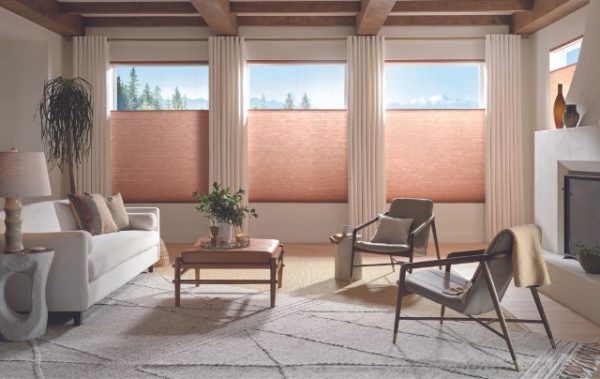
What’s the simplest way to upgrade your window treatments?
